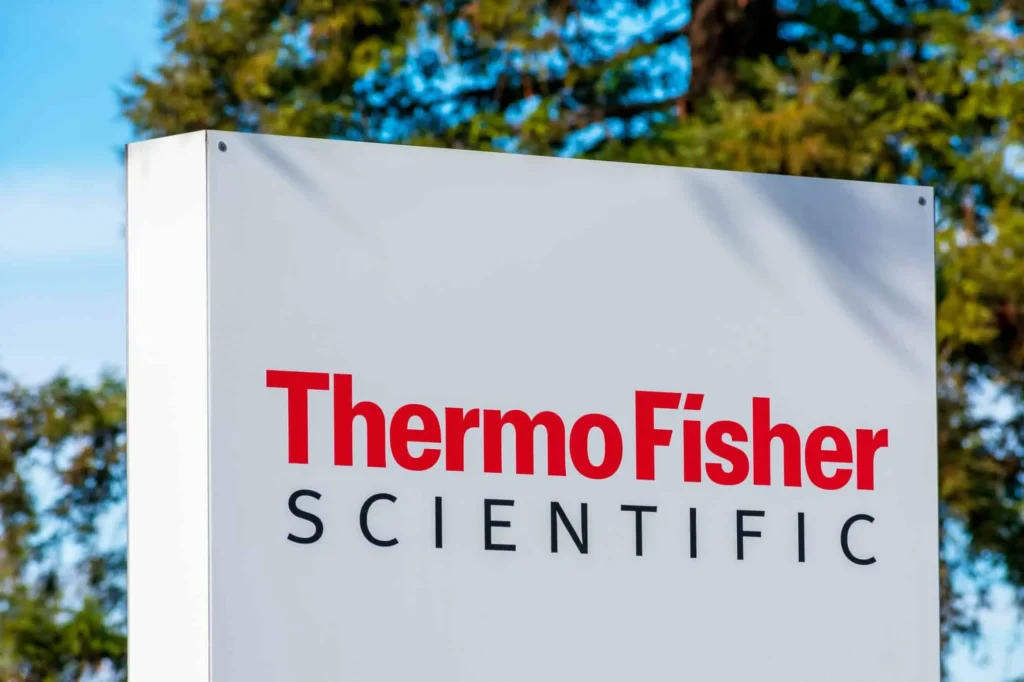
Thermo Fisher Scientific Launches Molecular Microscope Diagnostic System to Transform Lung Transplant Rejection Detection and Management
Thermo Fisher Scientific Inc., the global leader in serving science, has unveiled an innovative laboratory-developed test (LDT) that aims to revolutionize the detection and management of lung transplant rejection. The Molecular Microscope® Diagnostic System for Lung (MMDx® Lung) is designed to enhance the accuracy of post-transplant biopsy assessments, helping clinicians identify early signs of rejection and injury through advanced molecular analysis and machine learning. This cutting-edge system promises to deliver quantifiable insights that may improve diagnostic confidence, personalize treatment decisions, and ultimately enhance long-term transplant outcomes.
Addressing Diagnostic Challenges in Lung Transplantation
Lung transplantation represents a vital, life-saving procedure for patients suffering from end-stage lung diseases such as idiopathic pulmonary fibrosis, chronic obstructive pulmonary disease (COPD), and cystic fibrosis. Although once considered experimental, lung transplantation has become an established standard of care over the past few decades. According to the OPTN/SRTR 2023 Annual Data Report, the number of lung transplants performed annually in the U.S. has nearly doubled in the past decade.
However, despite these advances, lung transplant recipients continue to face significant post-surgical challenges—chief among them being graft rejection. Compared to other solid organ transplants such as kidney or heart, the lungs are particularly vulnerable to immune-mediated rejection due to their constant exposure to the external environment. This makes early and accurate detection of rejection critical to preserving graft function and improving patient survival.
The diagnostic process has traditionally relied on transbronchial lung biopsies examined under a microscope by pathologists. Unfortunately, this approach often suffers from substantial inter-observer variability. Studies have shown that when examining the same biopsy, only about 18% of pathologists agree on a diagnosis of acute rejection.¹ This lack of consistency can delay proper treatment and complicate clinical decision-making, contributing to poor long-term outcomes.
Introducing the MMDx® Lung: Molecular Insights Meet Machine Learning
To address these diagnostic limitations, Thermo Fisher has introduced the MMDx Lung, an innovative system that integrates genomics, bioinformatics, and artificial intelligence to provide a molecular-level view of transplant health.
The MMDx Lung analyzes gene expression data from biopsy samples, comparing each new specimen against a comprehensive reference database of more than 896 lung biopsy profiles. Through sophisticated machine learning algorithms, the system determines the likelihood of rejection and assigns molecular scores that reflect the degree of injury, graft dysfunction, and immune response.
These data-driven insights complement traditional histopathology, enabling clinicians to interpret biopsy findings with greater confidence. Instead of relying solely on subjective visual assessment, pathologists can now integrate objective molecular evidence into their evaluations, facilitating more accurate and timely diagnoses.
“The diagnosis of rejection and injury in lung transplants is very challenging,” explained Phil Halloran, Director of the Alberta Transplant Applied Genomics Center and CEO of Transcriptome Sciences Inc., the company behind the Molecular Microscope technology. “Based on research conducted through the INTERLUNG study, we believe MMDx Lung will enhance diagnostic precision, detect Chronic Lung Allograft Dysfunction (CLAD)-related molecular changes, and provide a valuable tool for guiding treatment and even clinical trial design. This innovation represents an important step toward improving lung transplant survival.”
Enhancing Diagnostic Confidence and Patient Care
The MMDx Lung is part of Thermo Fisher’s growing portfolio of post-transplant monitoring solutions, each designed to help clinicians tailor care to the individual patient. The system’s quantitative molecular readouts offer several key advantages:
- Increased Diagnostic Consistency: By using an objective molecular comparison to a large dataset, MMDx Lung reduces the variability that often exists between pathologists’ interpretations.
- Early Detection of Rejection: The system can identify molecular signatures of rejection before structural damage becomes visible under a microscope, allowing earlier therapeutic intervention.
- Comprehensive Assessment: In addition to rejection, MMDx Lung provides molecular indicators of graft injury and dysfunction, helping physicians understand the broader biological context of transplant health.
- Support for Personalized Treatment: Molecular profiling offers a more precise understanding of each patient’s immune response, which may help clinicians tailor immunosuppressive regimens and avoid unnecessary biopsies.
According to Tina Liedtky, President of Transplant Diagnostics at Thermo Fisher Scientific, the launch underscores the company’s commitment to advancing transplant medicine through innovation. “The introduction of MMDx Lung enhances our comprehensive portfolio of post-transplant monitoring solutions and reflects our ongoing mission to help our customers personalize patient care and improve outcomes across the transplant journey,” Liedtky said.
Collaborative Delivery with Kashi Clinical Laboratories
In the United States, the MMDx Lung system is being implemented through a collaboration with Kashi Clinical Laboratories, a leader in transplantation immunodiagnostic testing. This partnership ensures that the test is available as a laboratory-developed test (LDT) performed by a CLIA-certified laboratory, ensuring the highest standards of quality and reliability.

Dr. Todd Johnson, CEO of Kashi Clinical Laboratories, emphasized the partnership’s role in accelerating diagnostic turnaround and improving clinical decision-making. “Accelerating clinical decision-making through the delivery of high-quality, rapid results is central to our mission of advancing health and healing for every patient we serve,” Johnson said. “We are proud to expand our collaboration with Thermo Fisher Transplant Diagnostics to now deliver molecular diagnostic services for lung, alongside our existing kidney and heart transplant testing.”
By combining Thermo Fisher’s molecular technology with Kashi’s clinical testing expertise, the collaboration enables transplant centers to access state-of-the-art genomic diagnostics that may significantly improve the management of lung transplant patients.
A Growing Need for Precision Diagnostics in Transplantation
While advances in immunosuppressive therapies and surgical techniques have improved short-term lung transplant survival rates, long-term outcomes remain suboptimal. The five-year survival rate for lung transplant recipients hovers just under 60%,² a figure significantly lower than that for kidney or liver transplants. Chronic rejection, manifesting as CLAD, remains a leading cause of graft failure.
Tools like the MMDx Lung have the potential to shift this paradigm by providing earlier and more reliable detection of immune activity that precedes irreversible graft injury. Molecular-level insights can empower clinicians to adapt treatments proactively, potentially preventing progression to chronic rejection.
Furthermore, the ability to quantify biological processes opens new opportunities for clinical research. Pharmaceutical developers could use MMDx-derived molecular data to stratify patients in clinical trials, monitor therapeutic responses, and evaluate new immunosuppressive strategies with unprecedented precision.
Regulatory Status and Trademark Information
The MMDx Lung was developed and validated by Kashi Clinical Laboratories, LLC. As a laboratory-developed test (LDT), it is used for clinical purposes exclusively within CLIA-certified laboratories. It has not yet been cleared or approved by the U.S. Food and Drug Administration (FDA) nor CE marked in the European Union as an in vitro diagnostic device.
MMDx and Molecular Microscope are registered trademarks of Transcriptome Sciences Inc., which continues to collaborate closely with Thermo Fisher to expand molecular diagnostics across multiple organ types.
About Thermo Fisher Scientific
Thermo Fisher Scientific Inc. (NYSE: TMO) is the world leader in serving science, with annual revenue exceeding $40 billion. Guided by its mission—to enable customers to make the world healthier, cleaner, and safer—the company provides an unparalleled range of products and services across life sciences, healthcare, and applied markets.
From accelerating cutting-edge research to manufacturing life-changing therapies and advancing diagnostics, Thermo Fisher supports scientific progress through its globally recognized brands, including Thermo Scientific, Applied Biosystems, Invitrogen, Fisher Scientific, Unity Lab Services, Patheon, and PPD.
For more information about Thermo Fisher and its Molecular Microscope® Diagnostic System portfolio, visit www.thermofisher.com/mmdx.





